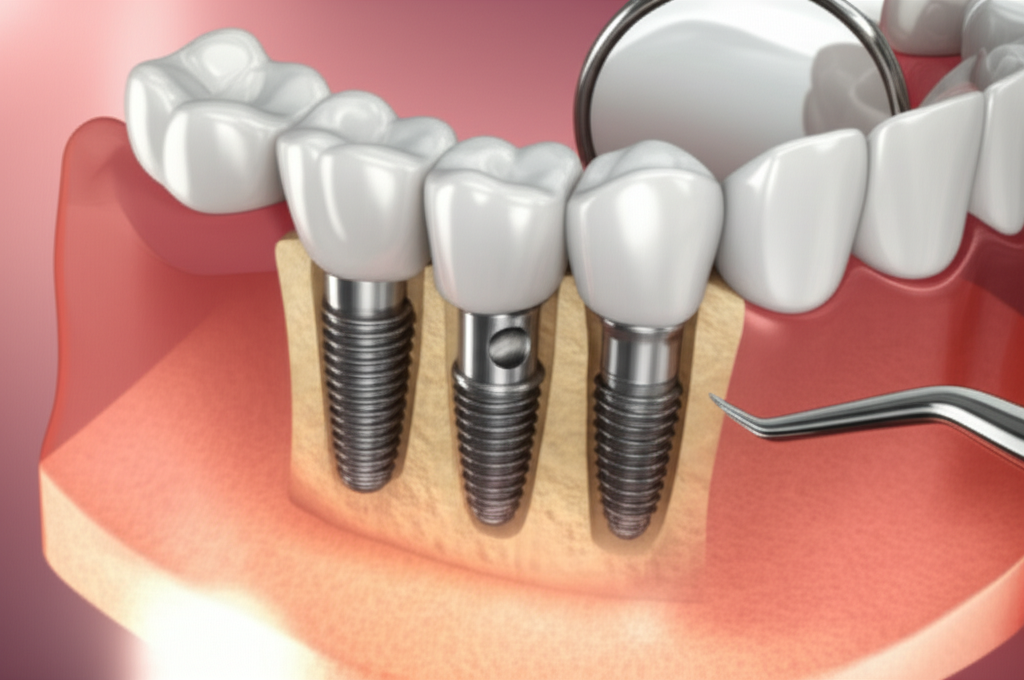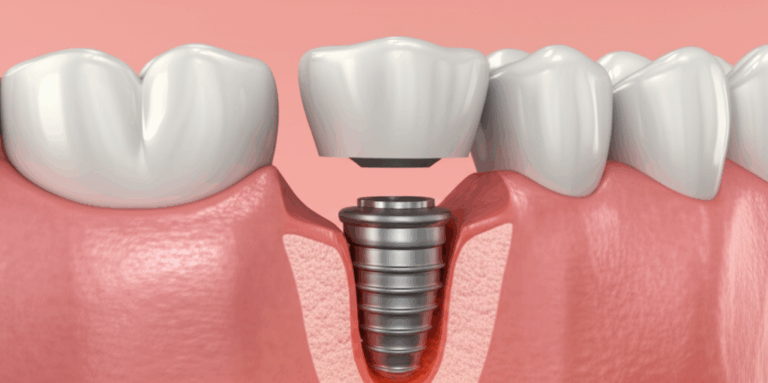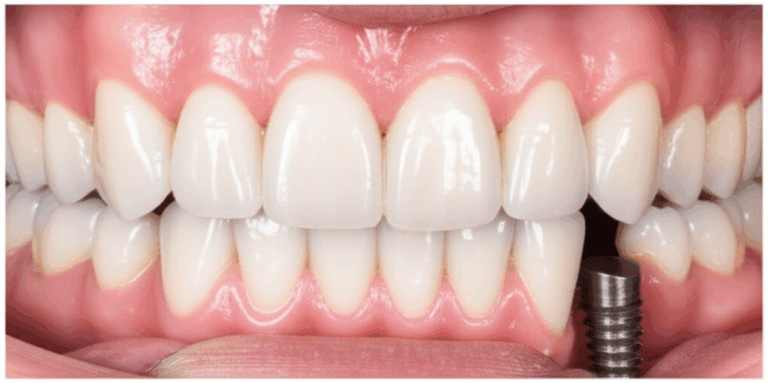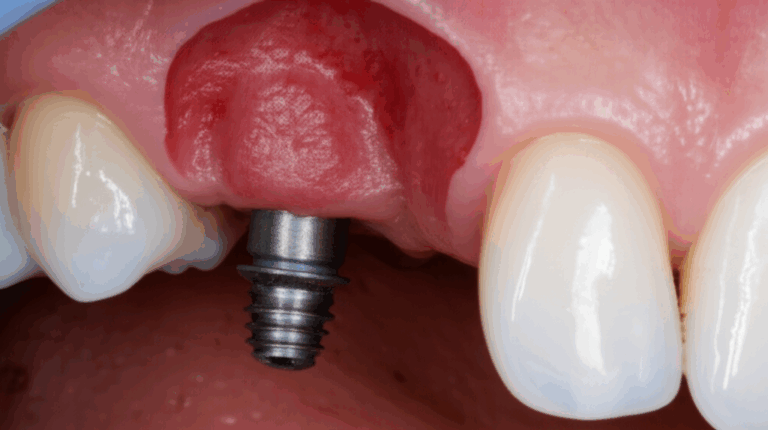
Why Are My Teeth So Sensitive? Understanding the Problem and Finding the Right Solution
Have you ever made a face while drinking an ice-cold soda or stopped yourself from eating hot soup because your teeth hurt? You’re not the only one. Millions of people feel sharp, quick pain from their teeth—this is called tooth sensitivity. If you’re tired of feeling pain when brushing your teeth or when you eat and drink, you’re probably wondering, “Why are my teeth so sensitive, and what can I do to stop it?” Let’s look together at what’s really going on in your mouth, what you can do at home, and how you can get back to smiling without worry.
In This Article
- What Is Tooth Sensitivity?
- Common Causes of Sensitive Teeth
- Home Remedies and Lifestyle Tips
- When to Seek Professional Help
- Treatment Options at the Dentist’s Office
- Who’s Most at Risk for Sensitive Teeth?
- Essential Takeaways and Next Steps
- Frequently Asked Questions
What Is Tooth Sensitivity?
Let’s start from the beginning. When you bite into ice cream or sip a hot drink, your teeth suddenly shock you with pain. It’s not just in your head. Tooth sensitivity—dentists call it “dentin hypersensitivity”—is a real and common problem.
How Does It Feel?
Most people explain it as a sudden, sharp pain or sting that can happen when you:
- Eat or drink something cold or hot
- Eat sweet or sour foods
- Breathe in cold air
- Brush or floss your teeth
It can be in one tooth, a few, or even your whole mouth. The pain level changes and sometimes comes and goes.
Is Tooth Sensitivity Normal?
Honestly, you don’t have to feel embarrassed about it. The American Dental Association (ADA) says about 1 in 8 adults has tooth sensitivity at any time. So, if you’ve been dealing with it, you’re not alone.
Why Should You Care?
Tooth sensitivity isn’t just annoying. It can be a way your body warns you something isn’t right. Catching it early can help keep your teeth safe and save you from bigger (and more expensive) dental problems later.
Common Causes of Sensitive Teeth
Now, let’s see what’s really going on. Your teeth might look strong on the outside, but there’s more going on inside.
Why Do Teeth Hurt Like This?
Think of a tooth like a small castle. The outside layer, called enamel, is like a strong wall for your tooth. Under it is a softer part called dentin, which has tons of tiny tubes that go right to your tooth’s nerve. If the enamel gets thin or your gums move back, these tubes get left open. Suddenly, anything cold, hot, or sweet can reach your nerves. Ouch!
Common Reasons:
Let’s make it clear:
- Worn Enamel: Brushing too hard, using a hard toothbrush, or grinding your teeth can slowly take away that protective part.
- Gum Recession: Gums can move down because of age, brushing too hard, or gum disease, and that shows the soft part of the tooth.
- Tooth Decay: Cavities or old fillings let pain get in.
- Cracked Teeth: Even a tiny crack can make teeth hurt.
- Teeth Whitening Products: Using them too much or not the right way can make teeth sore.
- Acidic Foods and Drinks: Things like soda, sports drinks, and lemons can wear down enamel.
- Dental Work: Sometimes, after dental work, teeth feel more sensitive for a little while.
Imagine It: The “Sweater and Pipes” Analogy
Think of enamel like a cozy sweater. If the sweater is thin, you get cold much quicker—the “pipes” (dentin tubes) under it feel the cold and you feel pain right away.
Home Remedies and Lifestyle Tips
You don’t have to live with tooth sensitivity forever. There’s a lot you can do at home to protect your teeth and feel better.
At-Home Solutions
1. Use Toothpaste for Sensitive Teeth
Some toothpastes are made just to help sensitive teeth (look for the ADA Seal). They work by covering those dentin tubes—kind of like earplugs for every tooth tube. It might take a week or two, but you’ll probably notice a change.
2. Change How You Brush
- Use a soft toothbrush. Hard brushes are rough on enamel.
- Brush gently, not hard. Think of it as a massage, not a scrub.
- Don’t use gritty or scratchy toothpaste.
3. Watch What You Eat
- Don’t eat too much acidic food or drink, like soda, oranges, or tomato sauce.
- Rinse your mouth with water after these foods and drinks.
- Wait a little before brushing your teeth right after eating something acidic.
4. Use Fluoride Rinse
You can buy a fluoride rinse at most stores. It helps strengthen enamel and lessens pain.
5. Help With Teeth Grinding
If you wake up with a sore jaw or bite your teeth at night, you might be grinding them. A night guard can protect your teeth and keep enamel safe. Want to know more? Check out this resource on night guard dental lab.
6. Keep Your Mouth Clean
- Brush two times a day and floss gently every day.
- Change your toothbrush every 3-4 months or when it gets worn out.
When to Seek Professional Help
If you’ve tried the above and your teeth are still hurting, or if it’s getting worse, it’s time to see your dentist. Sensitive teeth should not be ignored, especially if it starts suddenly, hurts at night, or it’s only one tooth.
Main Reasons to See Your Dentist:
- Pain Does Not Go Away: Sensitive toothpaste and careful brushing aren’t helping.
- You Can See Tooth Damage: If you notice chips, cracks, or cavities.
- Red, Swollen, or Bleeding Gums: Could mean gum disease or infection.
- Recent Dental Work: Sometimes, a filling or crown needs a small fix from the dentist.
Your dentist has more ways to help you than you can do at home.
Treatment Options at the Dentist’s Office
So, you’ve made the appointment. What’s next?
What Can Your Dentist Do?
Think of your dentist as a problem-solver. Here’s what they might suggest, depending on what’s causing your pain:
1. Fluoride Treatments
At the dentist, you can get fluoride gels, foams, or special coatings to make teeth stronger and protect sore spots.
2. Dental Sealants or Bonding
If your gums are low, your dentist can paint a special covering over the root part of your tooth to block pain.
3. Fillings or Crowns
Broken fillings or cracked teeth can cause pain. Fixing these spots with fillings or crowns will cover up the nerves. Sometimes your dentist may work with a crown and bridge lab for custom help.
4. Gum Grafting
If your gums move back a lot, your dentist might suggest gum surgery to cover the root. It sounds scary, but it’s usually pretty quick and not so bad to recover from.
5. Root Canal
If the pain is really bad and caused by an exposed or infected nerve, a root canal can fix it. The name might sound bad, but it’s a regular thing for dentists and can save your tooth.
Are These Treatments Safe?
Yes, they are. These dental treatments are safe and used all over the world. Your dentist will tell you which one fits your situation best.
Who’s Most at Risk for Sensitive Teeth?
Anyone can get sensitive teeth. But some people have it more often.
People Who Have a Higher Chance
- People who brush hard or use rough toothpaste
- Folks who often eat or drink a lot of acidic stuff
- Anyone with gum trouble or gum disease
- People who grind their teeth a lot
- Those who have had dental work lately or get lots of cavities
- Older adults (enamel gets thinner naturally over time)
- People who use whitening kits all the time
Is It In Your Family?
You can get some risk from your parents—like if you just have thinner enamel naturally. But most causes are to do with your daily habits.
Essential Takeaways and Next Steps
Let’s finish with a simple list of what you can do today.
Your Healthy Smile Checklist
- Pay Attention to Your Teeth: If anything feels wrong, don’t ignore it.
- Try Sensitive Toothpaste: It really can help over time.
- Brush Gently: Use soft bristles and don’t brush too hard.
- Be Careful With Acidic Drinks and Foods: Cut them back, and rinse with water after.
- Floss Daily: Do it softly—don’t snap the floss.
- See Your Dentist: If pain is new, bad, or not getting better.
- Don’t Ignore Changes: Swelling, bleeding, or pain that stays shouldn’t be ignored.
Feeling Ready? Here’s What You Can Do Next:
Frequently Asked Questions About Sensitive Teeth
Can Sensitive Teeth Get Better Without Help?
Sometimes, yes—especially if the reason is something like recent dental work. But if it lasts a long time, it probably won’t stop without some kind of treatment.
Are Whitening Toothpastes Bad for Sensitive Teeth?
They can be. A lot of them are scratchy. If your teeth hurt, pick a brand made for sensitive teeth, and ask your dentist first.
What’s the Difference Between a Cavity and Sensitivity?
Cavities are holes where bacteria have eaten into your tooth. Sensitivity covers a lot of causes. If you see a black spot, a hole, or feel pain all the time (not just with hot or cold), see your dentist soon.
How Long Before Sensitive Toothpaste Starts to Work?
Most people start to feel better in 1–2 weeks, but it can take up to a month. Don’t give up right away!
Do I Have to Stop All Acidic Foods?
No, you don’t have to quit things like orange juice forever. Just don’t have too much, rinse with water after, and wait 30 minutes before brushing.
Final Thoughts—Bringing Back the Joy of Eating, Drinking, and Smiling
Tooth sensitivity can make eating and drinking uncomfortable. But with good info and a little care, most people can stop or control it. The trick? Listen to your teeth, practice good cleaning habits, and go to your dentist when you need to.
Whether you need a stronger night guard or want to learn about dental restoration like digital dental lab technology, there’s almost always a way to help.
Don’t let tooth sensitivity take away what you enjoy. You should be able to eat, drink, laugh, and live without pain. The first step? Pick the right toothpaste, be gentle when brushing, and plan to see your dentist. Your smile will thank you!
Further Reading:
- Find out about cutting-edge solutions for dental problems
- Curious about dental restoration? See how a zirconia lab can help with strong, natural-looking crowns.
Sources:
- American Dental Association (ADA) – Tooth Sensitivity
- Mayo Clinic – Tooth sensitivity: Overview and causes
- National Institute of Dental and Craniofacial Research
Remember: If you’re not sure, ask your dentist! They want to help—no embarrassment, no blame. Just help, care, and answers for you to be happier and healthier.








